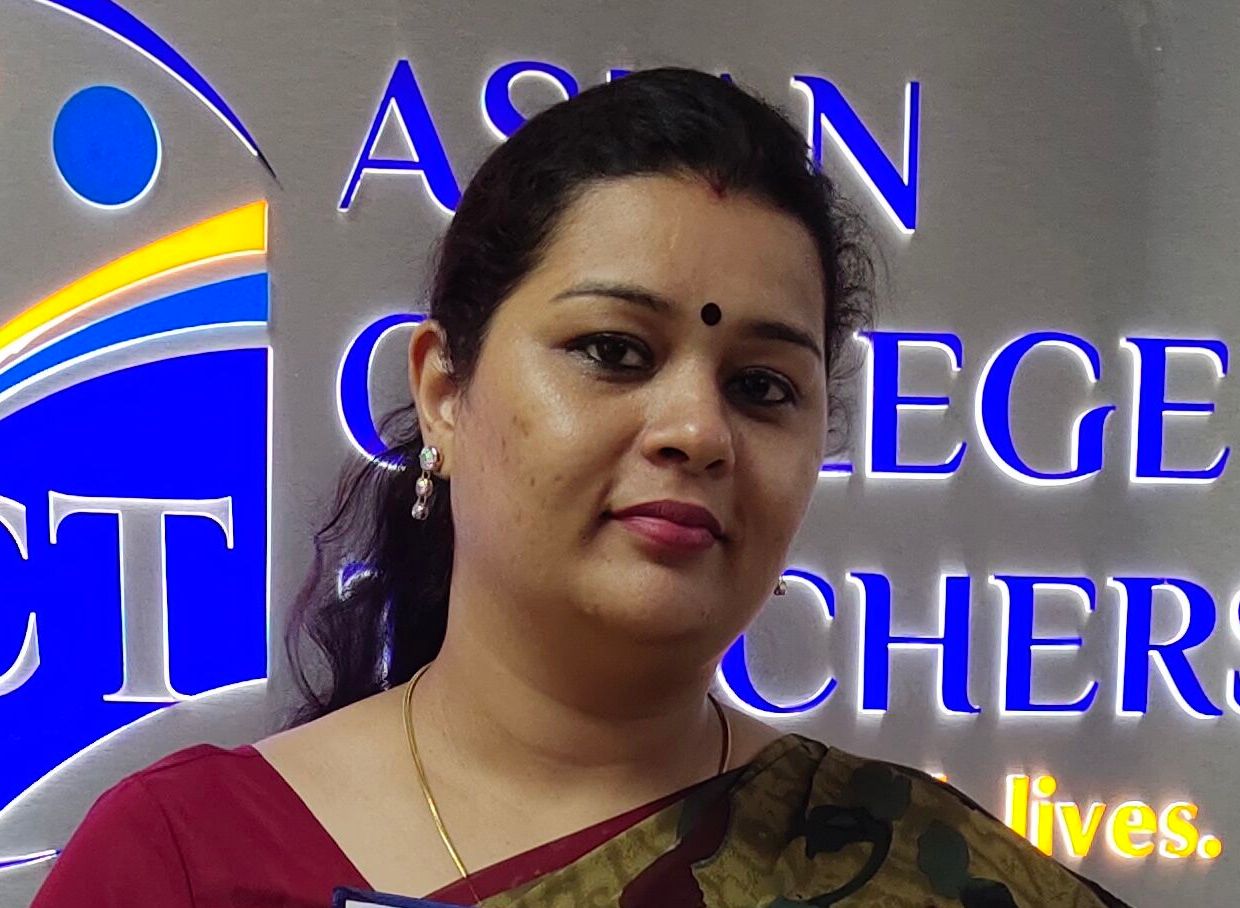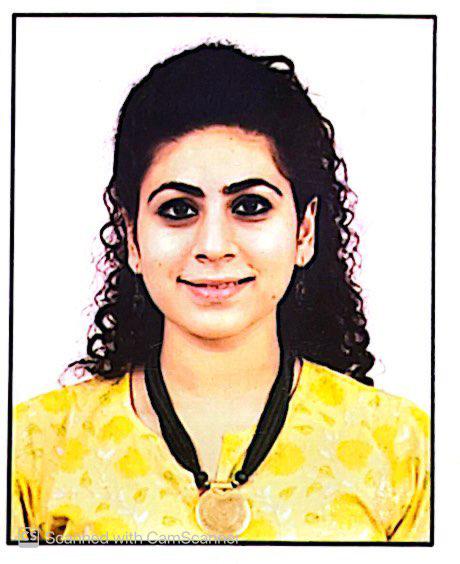TEFL Delhi - Asian College of Teachers
In-class:
Asian College of Teachers has introduced an In-Class TEFL course in Delhi, the Indian Capital city that is popular for its historical, architectural and archaeological heritage and attracts tourists from all over the world. The classes of TEFL Certification in Delhi are conducted for 3 weeks and trains students with the modern and effective TEFL teaching techniques so that they can fulfill their dream of teaching and traveling around the world.
Key Information
- Intensive program covering 3 weeks’ duration
- Upgraded curriculum
- Experienced and accomplished trainers
- Globally accepted certificate from ACT
- Take TESOL Canada Board Exam and get certified
- Varied job prospects on a global level
- Get the scope to taste the culture and colours of the capital city of India

Curriculum
- Trainees acquire practical teaching skills and thorough understanding of TEFL methods
- Course starts from the basics of the English language teaching like grammar and phonetics
- In-depth course content covering foreign language awareness and lesson planning
- Trainees develop classroom management skills, handling young and adult learners
- Tips to prepare your TEFL classes through Peer Teaching, Teaching Practice sessions
Online:
ACT has introduced an online TEFL course in Delhi for those working individuals who are unable to attend the in-class courses. The online courses are flexible and give you the scope to gain knowledge at your own pace and timing. The online english teacher training courses in Delhi are divided into three levels: Certificate, Diploma, and PG Diploma levels that aim to develop a thorough knowledge in EFL/ESL teaching right from the basics to an advanced level along with other key areas of education.
Key Information
Eligibility and Course Fee
- The minimum eligibility criteria for enrolling in the course is 10+2
- The course has been designed for both aspiring and experienced TEFLers
- The course fee ranges from 14,500 INR to 39,000 INR
- Basic computer skills along with a stable internet connection are also required
- Fast track mode of learning also available
| Course name | Eligibility | Duration | Course fees |
|---|---|---|---|
| 120 Hours Certificate in TEFL | Proficiency in written and Spoken English | 4 months | 14,500 INR (18% GST as applicable) |
| 220 Hours Diploma in TEFL | (10+2) | 8 months | 23,000 INR (18% GST as applicable) |
| 280 Hours Advanced Diploma in TEFL | (10+2) | 12 months | 29,500 INR (18% GST as applicable) |
| 400 Hours Post Graduate Diploma in TEFL | Bachelor’s degree | 1.5 years | 39,000 INR (18% GST as applicable) |
| 500-hour Advanced P G Diploma in TEFL | Bachelor’s degree | 20 months | 39,000 INR (18% GST as applicable) |
Curriculum
Module 1 TESOL Techniques, Lesson Plans & Classroom Management
- Phase 1 - Introduction to TESOL
- Phase 2 - The Study of English
- Phase 3 - Teaching Techniques (Language Skills)
- Phase 4 - Classroom Management
- Phase 5 - Lesson Planning
Module 2 TESOL Resources, Need based Language Teaching & Teaching Young Pupils
- Phase 6 - Need Based language Teaching
- Phase 7 - Teaching Young Learners
- Phase 8 - Text books and Materials
Module 3 Microteaching - It enhances teaching skills and promotes effective teaching methods
Module 1 TESOL Techniques, Lesson Plans & Classroom Management
- Phase 1 - Introduction to TESOL
- Phase 2 - The Study of English
- Phase 3 - Teaching Techniques (Language Skills)
- Phase 4 - Classroom Management
- Phase 5 - Lesson Planning
Module 2 TESOL Resources, Need based Language Teaching & Teaching Young Pupils
- Phase 6 - Need Based language Teaching
- Phase 7 - Teaching Young Learners
- Phase 8 - Text books and Materials
Module 3 Trainee teachers conduct researches and write research reports
Module 4 Business Speaking/Writing, Course Design, Client Approach & Evaluation Methods
- Phase 1- Introduction to Business English - Features and Components
- Phase 2 - Need Analysis
- Phase 3 - Course Design
- Phase 4 - The Client Approach
- Phase 5 - Feedback and Evaluation
- Phase 6 - The Classroom Management
- Phase 7 - Teaching Business Speaking
- Phase 8 - Teaching Business Writing
Module 5 Microteaching - It enhances teaching skills and promotes effective teaching methods
Module 1 TESOL Techniques, Lesson Plans & Classroom Management
- Phase 1 - Introduction to TESOL
- Phase 2 - The Study of English
- Phase 3 - Teaching Techniques (Language Skills)
- Phase 4 - Classroom Management
- Phase 5 - Lesson Planning
Module 2 TESOL Resources, Need based Language Teaching & Teaching Young Pupils
- Phase 6 - Need Based language Teaching
- Phase 7 - Teaching Young Learners
- Phase 8 - Text books and Materials
Module 3 Trainee teachers conduct researches and write research reports
Module 4 Teaching Young Learners, Developing Classroom Materials & Correction Techniques
- Phase 1 - Language Learning and Language Acquisition
- Phase 2 - Teaching Listening skills
- Phase 3 - How to Handle mixed groups
- Phase 4 - Material in the classroom
- Phase 5 - Correction Techniques
Module 5 Microteaching - It enhances teaching skills and promotes effective teaching methods
Module 1 TESOL Techniques, Lesson Plans & Classroom Management
- Phase 1 - Introduction to TESOL
- Phase 2 - The Study of English
- Phase 3 - Teaching Techniques (Language Skills)
- Phase 4 - Classroom Management
- Phase 5 - Lesson Planning
Module 2 TESOL Resources, Need based Language Teaching & Teaching Young Pupils
- Phase 6 - Need Based language Teaching
- Phase 7 - Teaching Young Learners
- Phase 8 - Text books and Materials
Module 3 Trainee teachers conduct researches and write research reports
Module 4 Teaching Young Learners, Developing Classroom Materials & Correction Techniques
- Phase 1 - Language Learning and Language Acquisition
- Phase 2 - Teaching Listening skills
- Phase 3 - How to Handle mixed groups
- Phase 4 - Material in the classroom
- Phase 5 - Correction Techniques
Module 5 Business Speaking/Writing, Course Design, Client Approach & Evaluation Methods
- Phase 1- Introduction to Business English - Features and Components
- Phase 2 - Need Analysis
- Phase 3 - Course Design
- Phase 4 - The Client Approach
- Phase 5 - Feedback and Evaluation
- Phase 6 - The Classroom Management
- Phase 7 - Teaching Business Speaking
- Phase 8 - Teaching Business Writing
Module 6 Microteaching - It enhances teaching skills and promotes effective teaching methods
Module 7 Peer teaching (Optional)- Students teach their peers and observe & learn from each other
Module 1 TESOL Techniques, Lesson Plans & Classroom Management
- Phase 1 - Introduction to TESOL
- Phase 2 - The Study of English
- Phase 3 - Teaching Techniques (Language Skills)
- Phase 4 - Classroom Management
- Phase 5 - Lesson Planning
Module 2 TESOL Resources, Need based Language Teaching & Teaching Young Pupils
- Phase 6 - Need Based language Teaching
- Phase 7 - Teaching Young Learners
- Phase 8 - Text books and Materials
Module 3 Trainee teachers conduct researches and write research reports
Module 4 Teaching Young Learners, Developing Classroom Materials & Correction Techniques
- Phase 1 - Language Learning and Language Acquisition
- Phase 2 - Teaching Listening skills
- Phase 3 - How to Handle mixed groups
- Phase 4 - Material in the classroom
- Phase 5 - Correction Techniques
Module 5 Need Analysis, Techniques, Feedback and other components of Train the Trainer
- Phase 1 - Training and learning
- Phase 2 - The Trainer
- Phase 3 - Techniques
- Phase 4 - The Group
- Phase 5 - Need Analysis
- Phase 6 – Feedback
Module 6 Microteaching - It enhances teaching skills and promotes effective teaching methods
Module 7 Peer teaching (Optional)- Students teach their peers and observe & learn from each other
Module 1 TESOL Techniques, Lesson Plans & Classroom Management
- Phase 1 - Introduction to TESOL
- Phase 2 - The Study of English
- Phase 3 - Teaching Techniques (Language Skills)
- Phase 4 - Classroom Management
- Phase 5 - Lesson Planning
Module 2 TESOL Resources, Need based Language Teaching & Teaching Young Pupils
- Phase 6 - Need Based language Teaching
- Phase 7 - Teaching Young Learners
- Phase 8 - Text books and Materials
Module 3 Trainee teachers conduct researches and write research reports
Module 4 Teaching Young Learners, Developing Classroom Materials & Correction Techniques
- Phase 1 - Language Learning and Language Acquisition
- Phase 2 - Teaching Listening skills
- Phase 3 - How to Handle mixed groups
- Phase 4 - Material in the classroom
- Phase 5 - Correction Techniques
Module 5 Need Analysis, Techniques, Feedback and other components of Train the Trainer
- Phase 1 - Training and learning
- Phase 2 - The Trainer
- Phase 3 - Techniques
- Phase 4 - The Group
- Phase 5 - Need Analysis
- Phase 6 – Feedback
Module 6 Microteaching - It enhances teaching skills and promotes effective teaching methods
Module 7 Peer teaching (Optional)- Students teach their peers and observe & learn from each other
Module 1 TESOL Techniques, Lesson Plans & Classroom Management
- Phase 1 - Introduction to TESOL
- Phase 2 - The Study of English
- Phase 3 - Teaching Techniques (Language Skills)
- Phase 4 - Classroom Management
- Phase 5 - Lesson Planning
Module 2 TESOL Resources, Need based Language Teaching & Teaching Young Pupils
- Phase 6 - Need Based language Teaching
- Phase 7 - Teaching Young Learners
- Phase 8 - Text books and Materials
Module 3 Business Speaking/Writing, Course Design, Client Approach & Evaluation Methods
- Phase 1- Introduction to Business English - Features and Components
- Phase 2 - Need Analysis
- Phase 3 - Course Design
- Phase 4 - The Client Approach
- Phase 5 - Feedback and Evaluation
- Phase 6 - The Classroom Management
- Phase 7 - Teaching Business Speaking
- Phase 8 - Teaching Business Writing
Module 4 Teaching Young Learners, Developing Classroom Materials & Correction Techniques
- Phase 1 - Language Learning and Language Acquisition
- Phase 2 - Teaching Listening skills
- Phase 3 - How to Handle mixed groups
- Phase 4 - Material in the classroom
- Phase 5 - Correction Techniques
Module 5 Need Analysis, Techniques, Feedback and other components of Train the Trainer
- Phase 1 - Training and learning
- Phase 2 - The Trainer
- Phase 3 - Techniques
- Phase 4 - The Group
- Phase 5 - Need Analysis
- Phase 6 – Feedback
Module 6 Components of Educational Administration, Management & Supervision
- Phase 1 - Components of Educational Administration
- Phase 2 - Human relations in Educational Administration
- Phase 3 - Educational Supervision
- Phase 4 - Decision Making in Education Management and Administration
- Phase 5 - Curriculum Issues in Administration
Module 7 Understanding Learning Disabilities and Individualized Education Program
- Phase 1 - Understanding Learning Disabilities
- Phase 2 - Identifying Students with LDs
- Phase 3 - Making sense of the IEPs
- Phase 4 - Understanding Service Locations
- Phase 5 - Learning the Right Teaching Strategies
OR
Module 7 Common Characteristics of HFA/AS and Understanding Students with Autism
- Phase 1 - Meet your Students with Autism
- Phase 2 - Understand the Common Characteristics of HFA/AS
- Phase 3 - Discover How Your Students Think
- Phase 4 - Nurture Students' Social Skills
- Phase 5 - Encourage Language Reciprocity
OR
Module 7 Attention Deficit Hyperactivity Disorder: Overview, Symptoms & Identification
- Phase 1 - Understanding Students With ADHD
- Phase 2 - The Diagnostic Process
- Phase 3 - Are They Putting in the Effort?
- Phase 4 - ADHD and Brain Activation
- Phase 5 - ADHD and Activity Level
Module 8 Microteaching - It enhances teaching skills and promotes effective teaching methods
Module 9 Peer teaching - Students teach their peers and observe & learn from each other
Module 1 TESOL Techniques, Lesson Plans & Classroom Management
- Phase 1 - Introduction to TESOL
- Phase 2 - The Study of English
- Phase 3 - Teaching Techniques (Language Skills)
- Phase 4 - Classroom Management
- Phase 5 - Lesson Planning
Module 2 TESOL Resources, Need based Language Teaching & Teaching Young Pupils
- Phase 6 - Need Based language Teaching
- Phase 7 - Teaching Young Learners
- Phase 8 - Text books and Materials
Module 3 21st Century Teaching Methodologies
- Phase 1 - Observation
- Phase 2 - Narration
- Phase 3 - Discussion
- Phase 4 - Explanation
- Phase 5 – Questioning
- Phase 6 - Demonstration
- Phase 7 - Application
- Phase 8 - Experiments
- Phase 9 - Discovery Learning
- Phase 10 - Feedback
- Phase 11 - Graphic Organisers and Visualisation
- Phase 12 - Grouping
- Phase 13 - Checklists
- Phase 14 - Product Descriptors and Rubrics
Module 4 Business Speaking/Writing, Course Design, Client Approach & Evaluation Methods
- Phase 1- Introduction to Business English - Features and Components
- Phase 2 - Need Analysis
- Phase 3 - Course Design
- Phase 4 - The Client Approach
- Phase 5 - Feedback and Evaluation
- Phase 6 - The Classroom Management
- Phase 7 - Teaching Business Speaking
- Phase 8 - Teaching Business Writing
Module 5 Teaching Young Learners, Developing Classroom Materials & Correction Techniques
- Phase 1 - Language Learning and Language Acquisition
- Phase 2 - Teaching Listening skills
- Phase 3 - How to Handle mixed groups
- Phase 4 - Material in the classroom
- Phase 5 - Correction Techniques
Module 6 Need Analysis, Techniques, Feedback and other components of Train the Trainer
- Phase 1 - Training and learning
- Phase 2 - The Trainer
- Phase 3 - Techniques
- Phase 4 - The Group
- Phase 5 - Need Analysis
- Phase 6 – Feedback
Module 7 Components of Educational Administration, Management & Supervision
- Phase 1 - Components of Educational Administration
- Phase 2 - Human relations in Educational Administration
- Phase 3 - Educational Supervision
- Phase 4 - Decision Making in Education Management and Administration
- Phase 5 - Curriculum Issues in Administration
Module 8 Understanding Learning Disabilities and Individualized Education Program
- Phase 1 - Understanding Learning Disabilities
- Phase 2 - Identifying Students with LDs
- Phase 3 - Making sense of the IEPs
- Phase 4 - Understanding Service Locations
- Phase 5 - Learning the Right Teaching Strategies
OR
Module 8 Common Characteristics of HFA/AS and Understanding Students with Autism
- Phase 1 - Meet your Students with Autism
- Phase 2 - Understand the Common Characteristics of HFA/AS
- Phase 3 - Discover How Your Students Think
- Phase 4 - Nurture Students' Social Skills
- Phase 5 - Encourage Language Reciprocity
OR
Module 8 Attention Deficit Hyperactivity Disorder: Overview, Symptoms & Identification
- Phase 1 - Understanding Students With ADHD
- Phase 2 - The Diagnostic Process
- Phase 3 - Are They Putting in the Effort?
- Phase 4 - ADHD and Brain Activation
- Phase 5 - ADHD and Activity Level
Module 9 Microteaching - It enhances teaching skills and promotes effective teaching methods
Module 10 Peer teaching - Students teach their peers and observe & learn from each other
Live Online:
The Live Online TEFL in Delhi program offered by Asian College of Teachers is conducted on a virtual platform where students engage in an interactive session with experienced and skilled trainers. The live online international TEFL/TESOL diploma in Delhi offered by ACT serve the needs of students across the globe and guide them to acquire the EFL/ESL teaching methodologies, interact with the facilitators and also with their peers, and take part in activities with the use of video conferencing technology.
Key Information
Eligibility and Course Fee
- Aspirants passion to teach and make a mark in the field of TEFL/TESOL
- Professional educators wanting to upgrade their skills
- Anyone looking for a career change can also enroll in the program
- Individuals looking to re-start their career in the field of education
- Individuals passionate about teaching and traveling
- Easy payment method is available and reasonable course fee of 35,000 INR only
Dates(Live online)
| Session Start date | Time | Duration |
|---|---|---|
| Weekend Classes: 17th May - 16th August 2025 | 2 pm to 5 pm (IST) | 3 months |
| Weekday Classes: 14th April - 29th May 2025 | 3 pm to 6 pm (IST) | 1.5 to 2 months |
Curriculum
- Introduction to TEFL
- Language Learning Approaches
- Experiencing learning a Foreign language
- Theatre in language learning
- Warmers
- Context setting
- Classroom management
- Young learners
- Lesson planning
- Multiple Intelligences
- Adult Learners
- Bloom's Taxonomy
- Creating lesson plans catering to listening and speaking
- Lesson plans based on reading and writing skills
- Lessons catering to all the 4 skills and a grammar component innovatively integrated
- 21st Century Teaching Skills
- VOLT - Virtual Online Training
- Micro Teaching
- Teaching Grammar
- Error Correction
- Phonology
- Music in language Learning
- Assessing Learning outcomes
Job Prospects
The accredited TEFL/TESOL courses in Delhi provides an internationally recognized certificate, on successful completion of the course, which aids in finding TEFL jobs across the world. A ESL certification in Delhi paves the way for varied job opportunities. With the completion of this course one can teach in public, private and international schools. One can even get the scope to teach in commercial language institutes. Due to the gradual rise in the demand of Business English trainers in corporate sectors, there will be no dearth of business English teaching jobs in Delhi. An EFL/ESL teaching job will fulfil all the aspirations as it comes with a well- paid salary and a wide range of teaching opportunities globally.
It allows you to improve your English teaching skills with TEFL/TESOL and paves the way to work as an EFL/ESL teacher in places like Thailand, Vietnam, China, Japan, South Korea, Middle East, Taiwan, etc. where the demand for ESL/ EFL teachers is high. The demand is also high in Asian countries and is among the top choices for candidates looking for suitable jobs in the field of English teaching.
Once into the job, the candidates can look forward to a lucrative career and added benefits provided by the schools. Teaching abroad is advantageous to those free-spirited and passionate travellers as it provides them with a scope to earn and teach while trotting the globe. The candidates can avail 100% job assistance throughout the intensive TEFL/TESOL courses online in Delhi till they get placed.
Certification
- Candidates will receive respective TEFL certificates upon completion
- For the 500-hour PG Diploma course, the candidates will receive certificates for:
- 1. 500-hour International Advanced Post Graduate Diploma in TESOL/TEFL with Specializations in Business English Teachers Training, 21st Century Teaching, Young Learners Teachers Training, Education Management, Train the Trainer and Special Education
- 2.Diploma in Teaching
- 3.TESOL Canada Board Exam
Accreditation
- On successful completion of the course, the candidates will receive a globally recognized certificate from Asian College of Teachers.
- ACT TEFL courses are accredited by the world’s largest TESOL accreditation body TESOL Canada & TESOL USA
- Accreditation Service for International Schools, Colleges and Universities (ASIC) a member of British Quality Foundation, has accredited Asian College of Teachers (ACT)
- The prestigious EQAC - Education Quality Accreditation Commission has accredited Asian College of Teachers (ACT) that has met all the standards set by this Commission
- CPD Certification Service, UK has certified ACT’s TEFL programs
- All ACT courses are accredited by International Association for Quality Assurance in Higher Education (QAHE)
- Asian College of Teachers is a member of ACTFL - American Council on the Teaching of Foreign Languages
- ACT is a member of the International Association for Language Learning Technology (IALLT)
- ACT is a now an institutional member of IATEFL or International Association of Teachers of English as a Foreign Language
- All ACT courses are endorsed by NCC Education UK, an awarding organisation and a global provider of British education





